AI could provide revenue uplift of 10-20% to marketers: Kaushal Kurapati
Ever since humanity produced products and ideas, marketing has existed. The technologies have been different, but the concepts underlying acquiring devoted audiences are familiar even to a modern marketer. Even as the core principles have remained constant, marketing today is undergoing a tremendous transformation. CMOs are being held to revenue goals and they care about the entire user journey from consideration to purchase to customer service. This transformation is triggered by change in consumer behaviour, which in turn is driven by changes in technology, most particularly the widespread tracking of user data and the evolution of artificial intelligence as a transformative force.
AI is being heralded as the catalyst for a new technological revolution that is transforming multitude of industries all at once: medicine, chess, board games, war, finance, advertising, and even creative fields like painting, writing, etc.
In his address at the ad:tech conference in Mumbai, Kaushal Kurapati, Group Vice President, Oracle’s Marketing Cloud Division, walked through the history and influence of AI in various fields, along the way noting the caveats and shortfalls of the technology. He also discussed what areas of marketing are getting changed irrevocably and where human intuition still reigns supreme.
Kurapati oversees a broad product portfolio that includes social listening, real-time analytics, and testing and personalisation products. He has vast experience in Technology and Product Management spanning areas such as Web Search, Personalisation, Search advertising, Small Business, and e-commerce.
Kurapati is an active participant in hackathons and is a three-time winner at MasterCard, including a grand global prize there couple of years ago. He holds 24 patents issued to-date and 50+ filed so-far, in the areas of Personalization, Payments, and Search Ranking. He is originally an Aerospace Engineer from IIT-Madras.
Adgully caught up with Kaushal Kurapati on the sidelines of ad:tech Mumbai 2018, where he underlined how data driven creativity can fortify marketing strategies, as well as how AI is helping marketers gain consumer loyalty and the business edge that AI provides. Excerpts:
Could you elaborate on your platform - AB Testing?
AB Testing is a platform where we have carved out a few users aside and show them this new experience, and to a bunch of other users, let’s show them the standard experience, what’s called the control room. This is very standard in medical practice used for testing, where we select a random set of people and compare the results. The same concept is applied in a digital sense. It’s a culture of experimentation, where you test it out with users when you don’t know what the answer is, and then serve out based on the data that comes back, saying this is better for this set of users.
Other than medical is it also used by other players, for instance, banking and insurance?
Yes. This is done by, say, a financial services customer such as a bank, where they are, for instance, launching a new credit card aimed at students. They might show some promotional offer asking a certain set of users to click on a link to get a new travel-based credit card, whereas a certain set of users will be shown a regular credit card. The bank can then compare the sign-up rates for it and find out whether the new credit card resonates better with a section of the population that it want, so that they can take a decision on whether or not to roll it out more broadly.
How are you seeing Indian companies and Indian financial institutions using AI effectively?
I think it’s a worldwide phenomenon really. We have our own customer base from varied sectors such as retail, financial, public sector companies, and a lot of them are realising that they are sitting on a lot of data essentially. Not just India, worldwide people have woken up to this fact in the last five years. I feel in India has become a society where everything is tracked, thanks to Aadhaar. I won’t talk about the privacy implications, but wherever you go, essentially you will require a phone number or an Aadhaar number; some form of identification is required to even access basic services or governance or to get into a taxi cab for that matter.
I think the society has changed quite significantly here in this context, where people are getting used to the fact that they have to give a number, which will be tracked and certain benefits will be unlocked because of that, and for a certain section of the society trackability is important. But it’s still early innings.
What are the implications of data, its generation and how companies are going to track that data which will be beneficial to the customer and the company?
I think FMCG is a great example of this, especially online where it has taken off very significantly. Basically, it has become an Amazon versus Walmart battle here in India, which is quite fascinating to see, and maybe Big Bazaar and some local players; Kishore Biyani is pretty big too.
I think what all of these companies have realised early on globally is that they track so much of the consumers that there is a huge history that is built up. Everybody is realising that we leave a digital trail of everything online – what one is buying, or watching, or gifting, or travelling. Once you start doing that, you start building up a profile of your life. And so, the benefit for you as a consumer would be that it makes shopping a lot more efficient.
But efficient here is debatable as we also get a lot of other things pushed to us…
True. There is an annoying aspect to this retargeting and things like that happen, but I think from a shopping perspective there are some advantages to it when you buy things frequently. For the company, of course, there is more customer loyalty. In that sense, the Internet is a true leveler.
You had also talked about increasing focus on creating personalised customer experiences due to AI. What kind of experiences are these?
Your bank, for example, knows a lot about where you shopped and what all you bought, thanks to your credit card and debit card transactions, and also the money that is flowing in. So in that sense, the bank has a financial picture of you which enables it to match it up with certain other data elements and create a personalised experience for you that is also relevant.
With increasing focus on creating personalised consumer experiences, how can technologies like AI and Augmented Reality enhance those consumer experiences?
I think one shouldn’t get wrapped up in a particular jargon or an algorithm. Marketers want to encourage loyalty and reach out to new customers AI can help them do that more effectively and efficiently by providing them the right tools and techniques. Marketers could be at different stages of that AI journey – some are very sophisticated, where they are using data to target the right customer at the right time; while some marketers are struggling with how to efficiently adopt AI and the right way of doing things.
What AI does is equip marketers with the tool to use consumer data effectively to benefit the consumer’s interests and then diversify these interests, and at the same time to their own benefit as well. That’s exactly what an algorithm is doing, where it is essentially trying to be that intelligent shopkeeper or marketer, but without a face. Marketers will have to try and imagine those perspectives.
With the recent spate of data thefts and hacking incidents, how does one ensure data driven marketing strategies that protect customer data?
That is a challenge still. I think even the best companies are also struggling with it, and it’s like an arms race between the good guys and the bad guys! The bad guys see this treasure trove of data which can be used in malicious ways. On the other hand, the good guys or the custodians of data are also in a race to try and protect this data as much as possible, because it is the new gold. So, there’s no simple answer to that. I think it’s a constant battle of one upping the other; and while that remains a threat, I don’t you need to be worried that essentially you stop doing things online.
Oracle takes a lot of pride in safeguarding customer data and we have not, to my knowledge, had significant instances of any breach from our side. We are custodians of customer data, because a lot of big Fortune 500, Fortune 100 companies run many of their marketing activities through us. So, we do hold a lot of that customer data and we take that very seriously. That has been possible because we are trying to stay a step ahead and trying to protect the data as much as we can through multiple safeguards. And because our customer have entrusted us with that critical piece of data, we take that responsibility very seriously.
What is the kind of cost surge that marketers need to prepare for in order to adopt AI technology?
Along with money, there is a lot of effort and training that an organisation needs to invest in. Because AI involves advanced technology, so yes, the cost is high. But you have to look at it from the perspective of the efficiency gains that you are getting out of it, which you can evaluate. You could get a revenue uplift of 10-20 per cent. And if that is the case, then it could be well worth the money, because for every dollar or rupee that you have spent, you could get 7x or 10x in returns, as you have now driven extra purchases from your customers. Since you have converted more customers to become loyal customers, all of that is real value for you. So, you have to think about it not in terms of how much money it will cost you, but how important it can be for your business. It can become a lifeline in a sense, because if we don’t do it, somebody else is going to do it, and then they are going to get ahead.
Looking at the place we are in, where do you see this landscape in the next five to six years?
I think it will change quite significantly. India is one of the cheapest countries in terms of data now, thanks to Jio, which has unleashed video consumption. I have not seen Netflix promote its shows as heavily elsewhere as it has been doing in India. Take for instance, its ads for a show like ‘Narcos’. Earlier, they had an ad blitz for ‘Sacred Games’.
The point is that they are betting big on the future. Similarly, a lot of companies are looking at the young demographics here, who are going to spend their lives on the phone – for entertainment needs, for shopping online, banking & financial transactions, chatting & networking, expecting things to be done online through chatbots.
Thus, when consumer behaviour shifts so radically, companies will be forced to take notice. In think in the next five years, we will see a real transformation happening and unleashing of services, as well as the amount of data that will be available with over a billion people who will come online. Whoever taps into that will get ahead in the game.


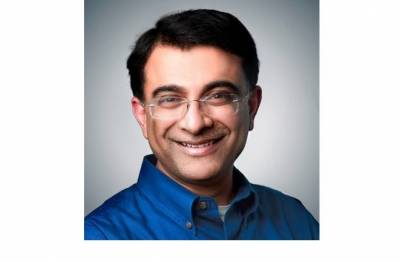



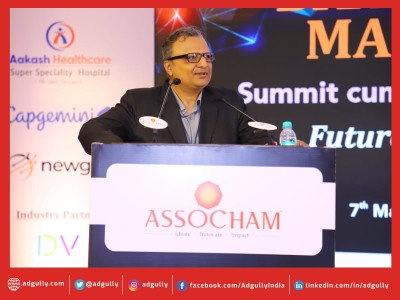

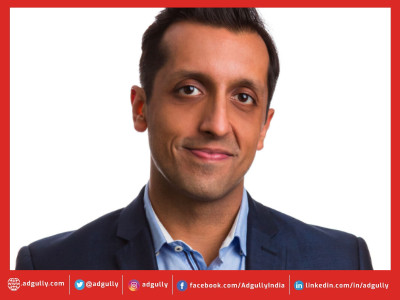

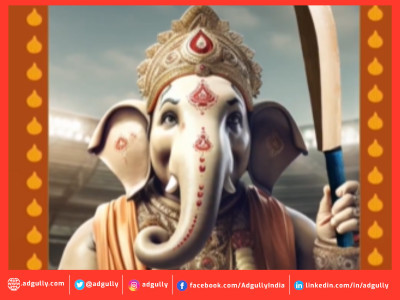



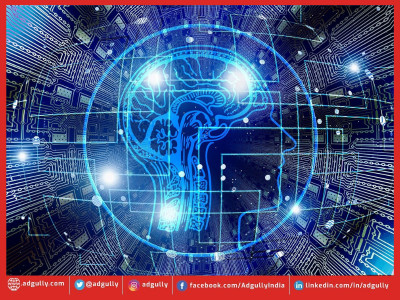

Share
Facebook
YouTube
Tweet
Twitter
LinkedIn